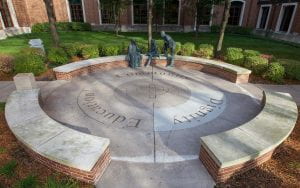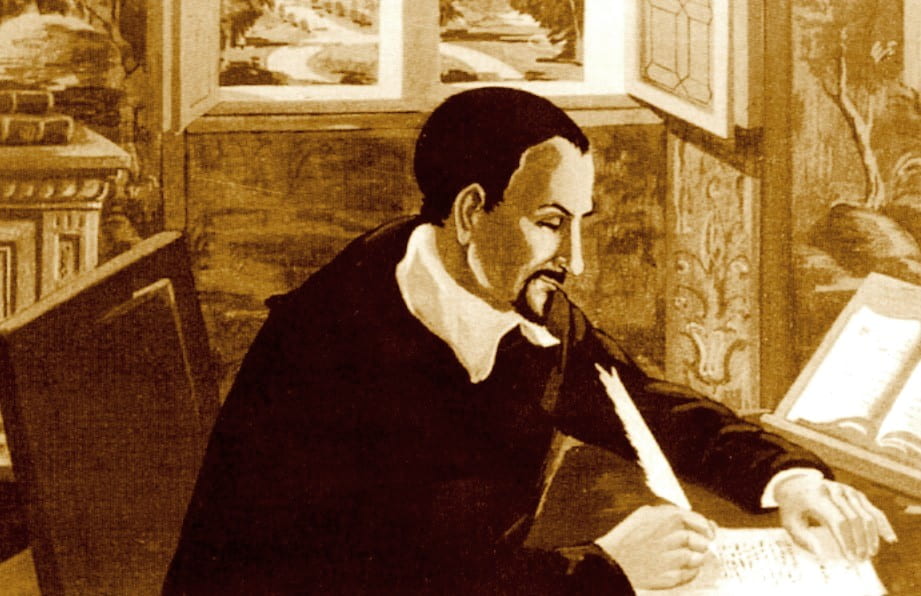
What does it mean for our beloved Vincentian mission to be integrated effectively into the daily life and work of the university community, in and out of the classroom?
This question is often top of mind for those of us working in Mission and Ministry and for many leaders for mission across the institution. Collectively, we hope that tangible evidence of our mission is woven regularly into the fabric and culture of all that happens at DePaul. Into the workplace environment. Into the classroom and the student experience. Into how decisions are made. Into plans for the future. Into how we evaluate our efforts and programs. In the way we frame our daily work as part of something bigger than ourselves. At DePaul, our mission is the essential ingredient mixed into all we do and create.
One theologian used the metaphor of yeast to describe the integration and flourishing of mission within Catholic universities in a pluralistic context. [1] Another metaphor often referenced in the world of Catholic theology is that of seeds already present in different contexts and cultures, needing only to be nurtured to flourish. [2] You may recall a somewhat recent campaign we did at DePaul called “Seeds of the Mission,” which built on this idea. Both metaphors help us to recognize the ways in which our Catholic Vincentian mission is already present and has opportunities to grow and be deepened among us and in our shared work.
But what does mission integration mean?
As we reflect on our work in light of the ongoing responsibility to understand more about DePaul’s stated mission and its deeper Vincentian roots, a shorthand construct and starting point emerge from the recognition that our mission is relevant in several different ways:
Why? What is motivating and orienting our actions and choices? How do they reflect our fundamental purpose and deeper sense of vocation, individually and collectively, to contribute to a more just and compassionate society?
What? How do the choices we make about what we do or how we spend our time and resources reflect consideration of our mission? How do we include care and concern for those who are marginalized?
How? How does the way we do what we do reflect the personalism, professionalism, and institutional values that we have come to understand as essential to the Vincentian way?
Who? How do I understand my own unique vocation as a person, an educator, a professional, or a leader and how does this frame my specific work and role? And, how do those we include and invite reflect the rich diversity of our human community? Are we paying attention to equity, to who is “at the table,” and to those who may be excluded?
Of course, even responding to these questions and different dimensions of mission integration requires additional considerations if we are to move toward concrete action. This is the careful discernment and collective wisdom that precedes action and that we have reclaimed again recently as Vincentian Pragmatism, which is qualitatively different from “just do it.”
The vital work of mission integration requires intentionality and care on the part of everyone at DePaul. The distinctiveness and foundational spirit of our mission are sustained only when it is thoughtfully and habitually part of our daily actions and choices and the way we function together as a human community, whether that be facilitating programs for students, teaching, leading teams of people, making budget decisions, doing research, or relating to one another. Each of these actions can reflect the underlying spirit we have come to identify as characteristically Vincentian, infusing our DePaul community and the work we do with a deeper sense of purpose and what many of us deem a sacred dimension.
Reflection Questions:
Which of the mission integration questions or dimensions (why, what, how, and who) do you most easily answer in relation to how mission is relevant to your life and work at DePaul? Which is most difficult to answer and why?
What ideas do you have for further integrating or sustaining Vincentian mission in your own area of work or within the university community?
Reflection by: Mark Laboe, Interim VP for Mission and Ministry
[1] Walter Ong, SJ, “Yeast,” America April 7, 1990. Reprinted and available here: https://www.bc.edu/content/dam/files/offices/mission/pdf1/cu13.pdf.
[2] The image of the “seeds of the Word” is used by Saint Justin Martyr in the second century and is highlighted often in the field of Catholic missiology. One helpful summary of this idea, framed by a larger conversation about the importance of interreligious dialogue, is written by one of the leading Catholic theologians in this field, Stephen Bevans, SVD. See his “Practices of Mission: Interreligious and Secular Dialogue,” convocation speech, 2013 Missional Church Convocation, July 2013, Chicago, IL, https://centerforparishdevelopment.wordpress.com/2013/11/11/interreligious/.



